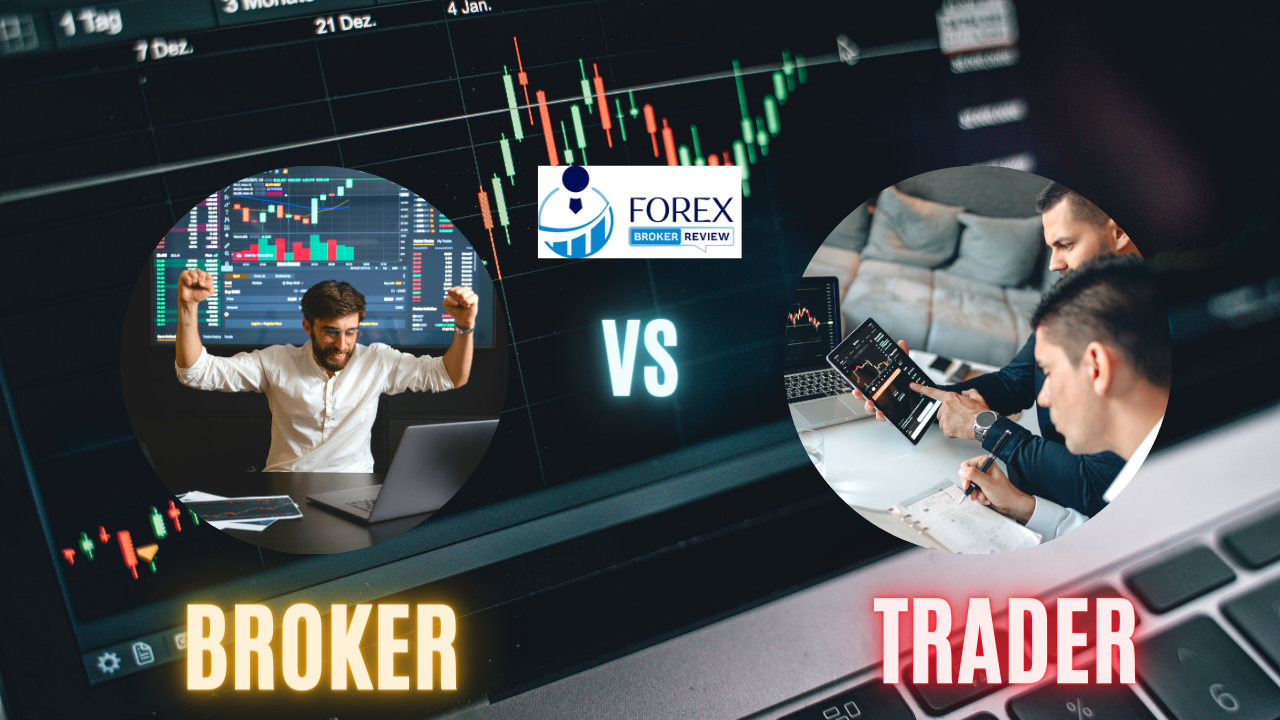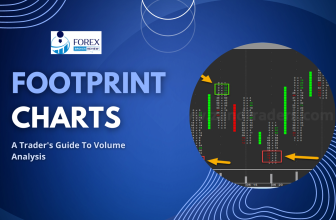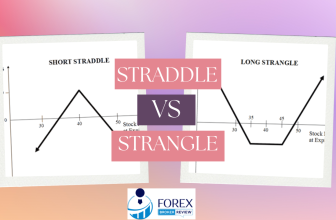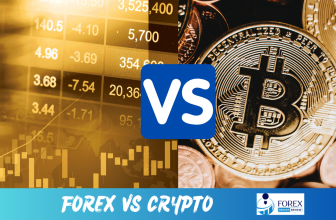
In the complex and ever-evolving world of financial markets, brokers and traders play distinct yet interconnected roles. As the saying goes, “Behind every successful trader stands a reliable broker.” Brokers act as intermediaries, bridging the gap between traders and the market, facilitating the execution of trades and providing access to a wide range of financial instruments. They collect market orders from traders and execute them, while also offering valuable insights and market information.
Traders, on the other hand, rely on brokers to execute their trades and find counterparties for their orders. They analyze market conditions, aiming to profit from price fluctuations and make informed trading decisions. Traders have various trading styles, ranging from scalpers who execute rapid trades to position traders who hold positions for longer periods. In this article, we will delve into the roles, responsibilities, market interactions, types of traders, and fees and commissions associated with brokers and traders, shedding light on the differences between these two key players in the financial markets.
Key Takeaways
- Brokers act as intermediaries between traders and the market, executing market orders on behalf of traders.
- Traders rely on brokers to find counterparties for their orders and execute trades in financial markets.
- Different types of traders include news traders, scalpers, and swing traders, each with their own trading strategies and timeframes.
- Brokers charge fees, commissions, and spreads for their services, which can vary depending on the type of broker and the trading platform used.
Broker vs. Trader: What’s the Difference?
Brokers and traders have distinct roles in the financial markets, with brokers serving as intermediaries who collect market orders from traders and execute them on the market. The impact of technology has significantly influenced the relationship between brokers and traders. With the advent of online trading platforms, traders now have direct access to the market, reducing the need for traditional brokers. However, brokers still play a vital role in providing liquidity and connecting traders to counterparties.
Additionally, brokers offer valuable services such as research and analysis, trading tools, and customer support. On the other hand, traders are responsible for making trading decisions based on their analysis of market conditions. They need to manage their emotions and adhere to a well-defined trading plan to avoid impulsive and irrational decisions. Emotions such as fear and greed can significantly impact a trader’s performance and profitability. Therefore, traders must develop discipline and implement risk management strategies to mitigate the influence of emotions on their trading decisions.
Roles and Responsibilities of Traders & Brokers
Market participants who facilitate transactions and provide access to financial markets have distinct roles and responsibilities. One important aspect of these roles is the knowledge of the market. Both brokers and traders need to have a deep understanding of market conditions, trends, and factors that influence price movements. Brokers play a crucial role in facilitating trades.
| Roles and Responsibilities | Traders | Brokers |
|---|---|---|
| Role | Individuals who buy and sell financial instruments (stocks, options, futures, etc.) in the financial markets | Intermediaries who execute trades on behalf of traders or investors |
| Decision Making | Make trading decisions based on analysis, research, and market information | Facilitate trade execution as per trader’s instructions; provide market insights and research to clients |
| Order Placement | Place buy or sell orders to enter or exit positions | Execute orders on behalf of clients in the market |
| Risk Management | Manage risk exposure and implement risk management strategies | Ensure best execution for client orders and reduce market risks |
| Trading Strategies | Use various trading strategies to profit from price movements | Offer trading platforms, tools, and resources to support different trading strategies |
| Market Analysis | Analyze market data and trends to identify potential opportunities | Provide market analysis and research reports to clients |
| Portfolio Management | Manage and optimize their trading portfolios | Offer portfolio management services to clients |
| Trading Discipline | Follow disciplined trading practices and stick to trading plans | Ensure compliance with trading regulations and market rules |
| Capital Allocation | Allocate capital wisely to different trades and asset classes | Provide advice on asset allocation and investment strategies |
| Reporting and Record Keeping | Maintain records of trades, performance, and financials | Keep records of client accounts, trades, and transactions |
| Customer Service | N/A (Traders typically do not provide customer service) | Provide customer support to clients, address queries, and assist with account-related matters |
They act as intermediaries between the traders and the market, collecting market orders and executing them on behalf of the traders. Brokers also find counterparties for traders’ orders and may use internal or external liquidity providers. They provide the necessary platform and tools for traders to access the market and execute their trades. Overall, brokers play a vital role in ensuring efficient and smooth trading operations for traders, while traders rely on brokers for their expertise and execution capabilities.
Trader vs Broker: Market Interaction
Participants in the financial markets engage in a complex dance of interaction, where the ebb and flow of information, orders, and transactions create a vibrant tapestry of activity that shapes the direction of prices and the opportunities available to traders. Understanding market dynamics is crucial for traders to develop effective trading strategies. Here are three key aspects of market interaction:
- Liquidity Providers: Brokers play a vital role by connecting traders with liquidity providers, such as market makers, ECNs, or STPs. These providers offer the necessary liquidity for traders to execute their trades.
- Market Impact: Traders need to consider the impact of their trades on the market. Large orders can potentially influence prices, leading to slippage or unfavorable execution. Traders must carefully manage their positions to minimize market impact.
- Market Conditions: Traders analyze market conditions to identify profitable trading opportunities. They assess factors like price fluctuations, volatility, and market trends to make informed decisions. Understanding market dynamics allows traders to adjust their strategies accordingly and capitalize on favorable market conditions.
Types of Traders & Brokers
There are various categories of individuals who engage in financial market trading activities, each with their own distinct trading styles and objectives. Two common types of traders are scalpers and position traders. Scalpers aim to catch small price movements and typically hold trades for a few minutes or seconds. They rely on technical analysis and high-frequency trading strategies to make quick profits.
| Types of Traders | Description | Types of Brokers | Description |
|---|---|---|---|
| Retail Traders | Individual traders who trade with their own capital for personal investment or speculative purposes | Full-Service Brokers | Offer a wide range of services, including investment advice and research |
| Institutional Traders | Traders representing large institutions, such as hedge funds, banks, or asset management firms | Discount Brokers (Online Brokers) | Provide trading services at lower commission rates and limited support |
| Algorithmic Traders | Traders who use computer algorithms to automate trading decisions and execution | Online Trading Platforms | Provide self-directed trading platforms for retail traders |
| Day Traders | Traders who open and close positions within the same trading day | Direct Market Access (DMA) Brokers | Offer direct access to market liquidity and electronic communication networks |
| Swing Traders | Traders who hold positions for several days to weeks | Futures Brokers | Specialize in trading futures contracts and derivatives |
| Position Traders | Traders who hold positions for an extended period, often months to years | Forex Brokers | Specialize in trading forex (foreign exchange) |
| Scalpers | Traders who make quick, small profits from frequent trades | Options Brokers | Specialize in trading options contracts |
| High-Frequency Traders | Traders who use sophisticated algorithms for high-speed trading, executing large volumes of trades in milliseconds | Commodities Brokers | Specialize in trading commodities, such as gold, oil, etc. |
On the other hand, position traders take a long-term approach and hold trades for months or even years. They base their decisions on fundamental analysis and take advantage of large shifts in market trends. Another classification of traders includes news traders and swing traders. News traders focus on trading opportunities that arise from significant market news events, while swing traders hold trades for days or weeks and base their decisions on technical analysis and market patterns. Each type of trader employs different strategies and techniques to achieve their trading objectives.
Broker vs Trader: Fees and Commissions
Fees and commissions are a significant aspect of trading, with studies showing that the average commission rate for online stock trades in the United States ranges from $2.50 to $10 per trade. Understanding trading costs is crucial for traders to effectively manage their expenses and maximize their profits. Brokers charge fees, commissions, and spreads for their services, which can vary depending on the broker and the type of trade.
Some brokers charge commissions for each traded lot, while others may have inactivity fees or additional trading tools available for a fee. It is important for traders to compare fee structures and consider their trading frequency and strategy when choosing a broker. To provide a visual representation, the following table compares different fee structures:
| Fee Structure | Description |
|---|---|
| Commissions | Charges based on the number of lots traded |
| Spreads | Difference between buying and selling prices |
| Inactivity Fees | Charges for not trading frequently |
| Additional Tools | Optional trading tools offered by brokers for an extra fee |
By considering these factors, traders can make informed decisions about their choice of broker and effectively manage their trading costs.
Frequently Asked Questions
How do brokers make money from traders?
Brokers generate revenue by charging various fees to traders. These fees include spreads, commissions, and other service charges. Spreads are the difference between buying and selling prices, and brokers earn money by capturing a portion of this spread. Some brokers also charge commissions for each traded lot.
Additionally, brokers may impose inactivity fees and offer additional trading tools for a fee. While competition has led to the availability of free tools, brokers may charge fees for withdrawing profits or passing on the costs of international wire transfers to clients.
What are some common trading mistakes that traders make?
Emotional trading and overtrading are two common mistakes made by traders. Emotional trading refers to making decisions based on emotions rather than rational analysis, leading to impulsive and irrational trades. Overtrading occurs when traders excessively trade without proper analysis or strategy, often driven by a desire for quick profits.
Both mistakes can result in significant financial losses. To avoid these pitfalls, traders should maintain discipline, adhere to their trading plan, and make decisions based on careful analysis rather than emotions or impulsivity.
What are some important factors to consider when choosing a broker?
When considering important factors in choosing a broker, there are several key aspects to evaluate. Firstly, one must assess the broker’s reputation and regulatory compliance, ensuring they are trustworthy and operate within legal boundaries. Additionally, examining the broker’s trading platform, execution speed, and available trading instruments is crucial.
Furthermore, considering fees, spreads, and commissions is important to ensure cost-effectiveness. Lastly, evaluating customer support, educational resources, and account types can aid in making an informed decision. Ultimately, selecting a broker that aligns with one’s trading goals and requirements is paramount.
How does market volatility affect traders and brokers?
Market volatility has a significant impact on both traders and brokers. For traders, market volatility can create both opportunities and risks. Traders need to adjust their trading strategies to account for increased price fluctuations and potentially higher levels of risk.
They may choose to employ different techniques, such as using stop-loss orders or diversifying their portfolios, to manage the impact of market volatility. Brokers play a crucial role in managing risk during market volatility by providing access to a range of financial instruments and offering risk management tools to traders. They can also provide guidance and support to help traders navigate turbulent market conditions.
Can traders trade directly with the market without using a broker?
Direct market trading refers to the practice of traders executing trades directly with the market without the assistance of a broker. While it is technically possible for traders to engage in direct market trading, there are several advantages to using a broker.
Brokers act as intermediaries, providing access to the global financial markets, finding counterparties for traders’ orders, and offering additional trading tools. They also help ensure efficient trade execution and provide expertise and guidance to traders, enhancing their chances of success.






